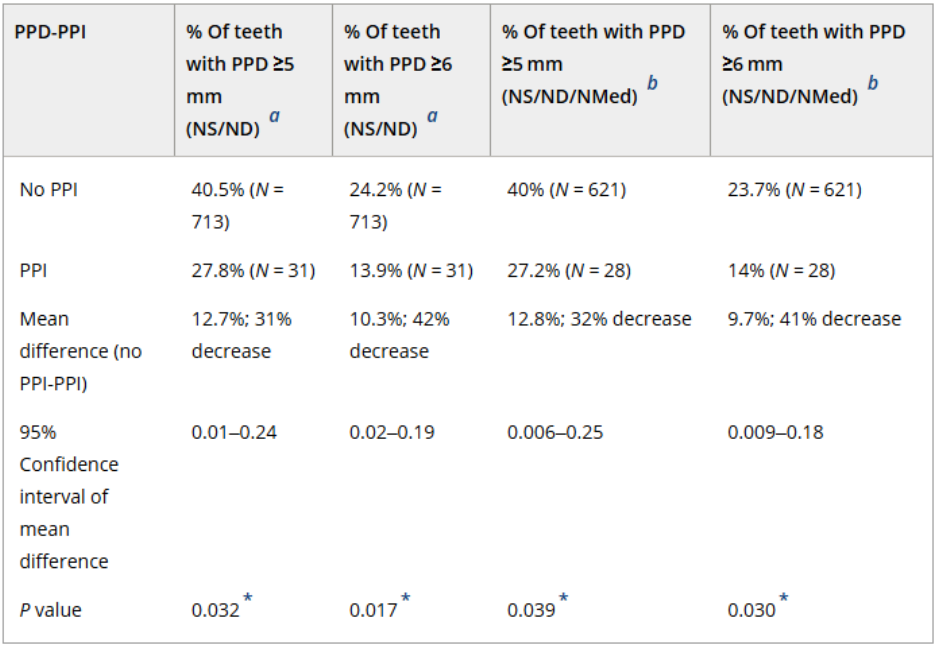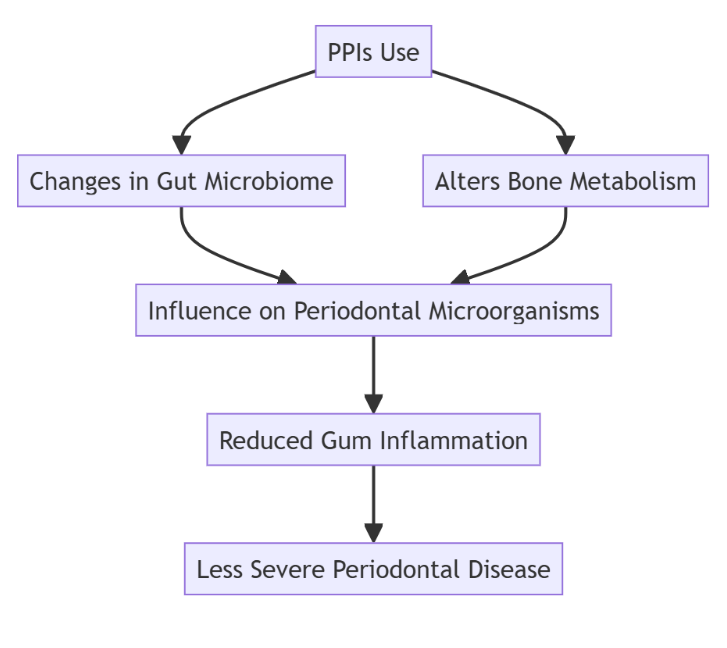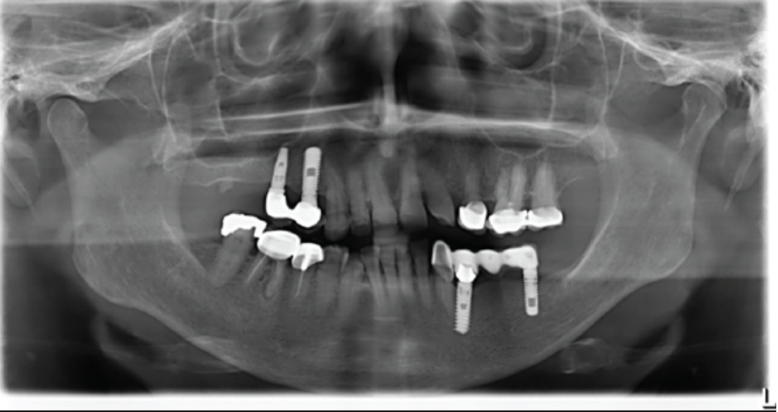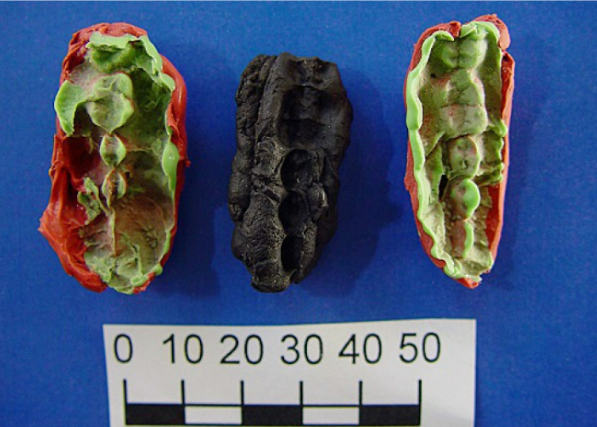The Link Between Heartburn Medications and Reduced Gum Disease Severity: What We Know
Heartburn medications, particularly proton pump inhibitors (PPIs), are widely prescribed to treat conditions such as acid reflux, GERD and ulcers. A recent study conducted by researchers at the University of Buffalo and published in the journal Clinical and Experimental Dental Research examined data from more than 1,000 patients with periodontitis, comparing probing depth measurements among PPI users and those who did not use them, show that PPIs may offer benefits beyond their primary function, potentially reducing the severity of the disease. gum disease, also known as periodontitis. This discovery opens the door to new possibilities for the management of periodontal health. This article reviews the role of PPIs in oral health, the potential mechanisms of their impact on gum disease, and what these findings may mean for future treatments.
Understanding Periodontitis: A Deeper Look
Periodontitis is a severe gum infection that, if untreated, can lead to tooth loss and other health complications. The disease is marked by increased probing depths in the gum tissue, indicating the widening gaps between teeth and gums. Healthy gums fit snugly around the teeth, but as harmful bacteria accumulate, they cause inflammation and bone loss, progressively worsening the periodontal condition. Recent data reveals that PPIs may reduce these probing depths, suggesting a potential new approach to mitigating the effects of periodontitis.
Research Overview: How Heartburn Medications Affect Gum Health
A study published in Clinical and Experimental Dental Research by researchers from the University at Buffalo investigated the relationship between PPI use and periodontal health. The analysis included clinical data from over 1,000 patients, comparing the probing depths in gum tissues of PPI users and non-users. The results were striking:
| Metric | PPI Users | Non-PPI Users |
| Teeth with probing depths ≥6mm | 14% | 24% |
| Teeth with probing depths ≥5mm | 27% | 40% |
These findings indicate that PPI users had significantly fewer instances of severe periodontal probing depths, signaling a potential association between PPI use and decreased gum disease severity.

Abbreviations: N, number of patients; PPD, periodontal probing depth; PPI, proton pump inhibitors. a NS/ND—non-smokers and non-diabetics. b NS/ND/NMed—non-smokers, non-diabetics, and patients without systemic conditions (see Methods). * Statistical significance P < 0.05.
Possible Mechanisms: How PPIs May Impact Periodontal Health
The mechanism by which PPIs influence gum health is not yet fully understood, but several hypotheses have emerged:
- Altered Bone Metabolism: PPIs are known to influence bone metabolism, potentially affecting the structure and density of alveolar bone, which supports teeth and gums.
- Impact on Gut Microbiome: PPIs can alter the gut microbiome, which in turn could affect systemic inflammation levels and potentially influence the oral microbiome.
- Direct Effect on Periodontal Microorganisms: Some researchers suggest that PPIs may have a direct impact on the microorganisms involved in periodontal disease, reducing the harmful bacteria responsible for inflammation and bone loss.
Additional research is needed to confirm these mechanisms, but the early data offers a compelling glimpse into how these medications might support gum health.
 Clinical Implications and Future Research Directions
Clinical Implications and Future Research Directions
Potential for Combination Therapy
The use of PPIs in conjunction with traditional periodontal treatments could represent a breakthrough in managing periodontitis. Combining PPIs with scaling, root planing, and other treatments may amplify their effectiveness, potentially reducing inflammation and bone loss more significantly than traditional methods alone.
Need for Long-Term Studies
Although promising, these findings are preliminary, and the potential long-term effects of PPI use on periodontal health remain unknown. Future studies should focus on exploring the direct relationship between PPIs and gum disease across diverse populations, including individuals of varying ages, lifestyles, and health statuses.
Key Takeaways: What This Means for Patients and Providers
- Patients with gum disease may benefit from discussing PPI options with their healthcare provider if they are already using these medications for acid reflux or similar conditions.
- Dental professionals could consider incorporating insights from this research into their treatment planning for patients with periodontitis, especially those already prescribed PPIs.
- Healthcare providers should weigh the potential benefits of PPIs for periodontal health against their well-documented side effects, particularly when used long-term.
Conclusion: PPIs as a Dual-Function Medication?
The association between PPIs and reduced gum disease severity introduces an intriguing potential for repurposing these medications. As additional research unfolds, PPIs may emerge as a valuable tool in the ongoing battle against periodontitis. The possibility of combining PPIs with existing periodontal treatments could lead to significant advancements in oral health outcomes, offering new hope for those struggling with chronic gum disease.
Sources
- ScienceDaily – Heartburn drugs may have unexpected benefits on gum disease
- Wiley Online Library – Association between proton pump inhibitors and periodontal disease severity – 21 September 21 2021







